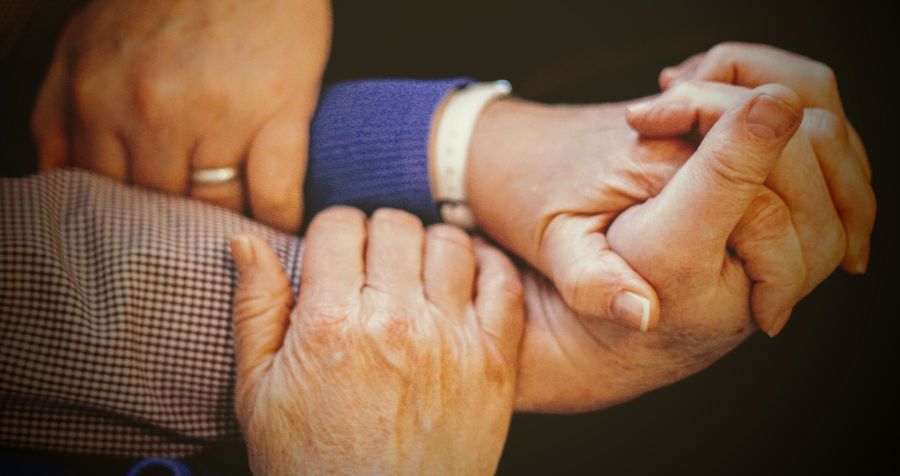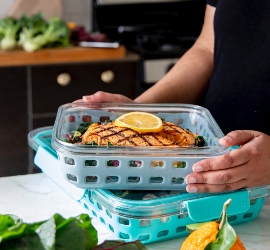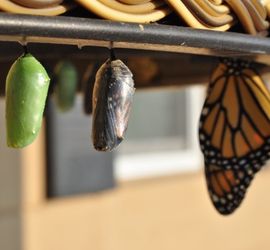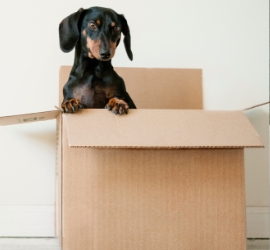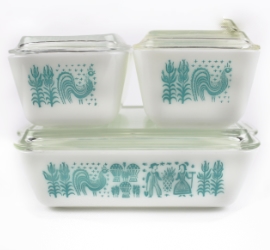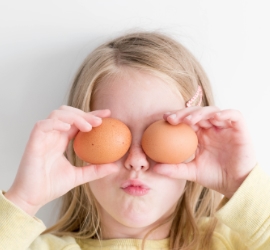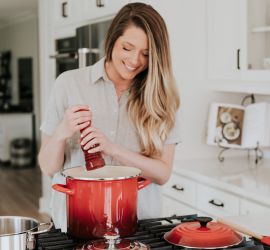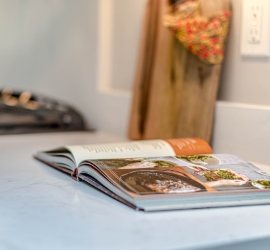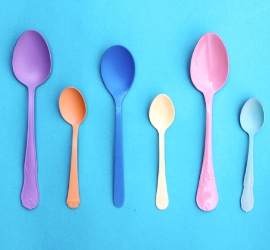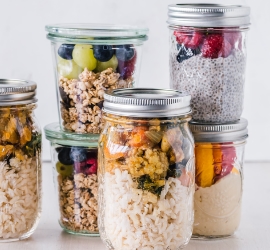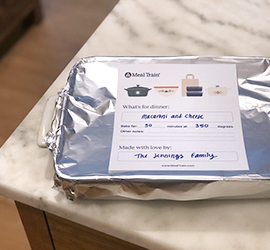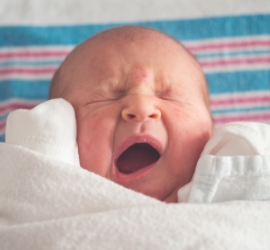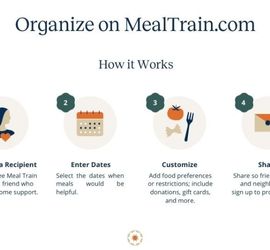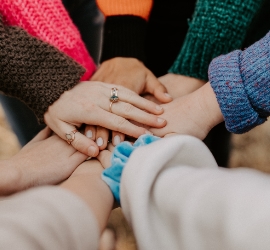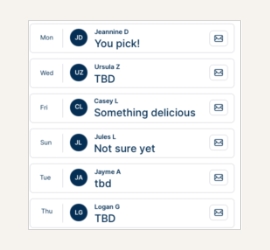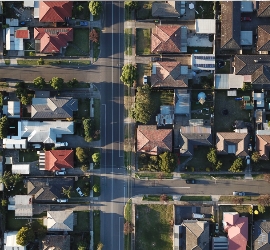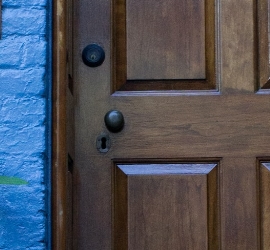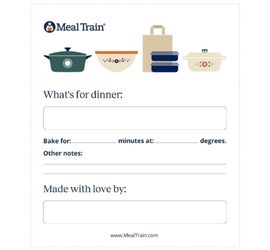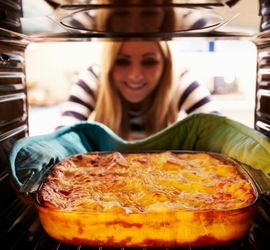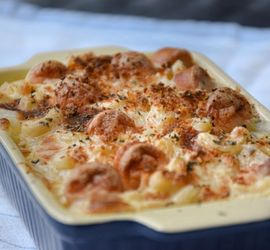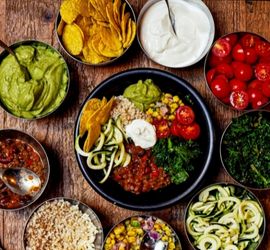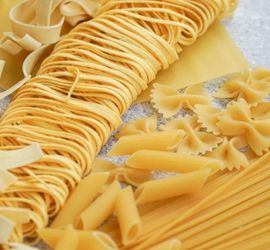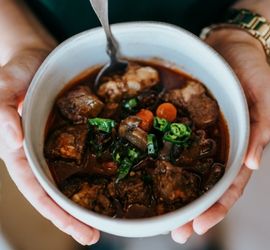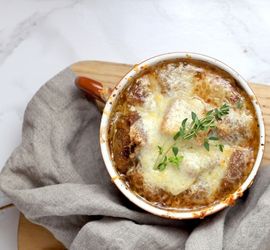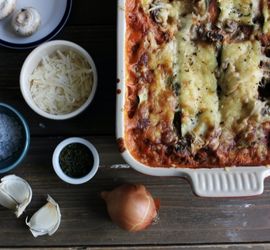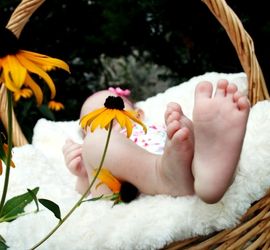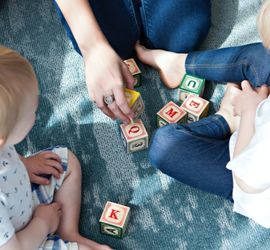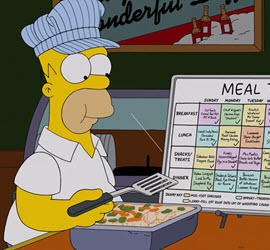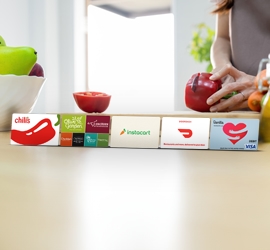“Oh my gosh, Joanna just had surgery. Let’s take her dinner.”
“Liz had a baby last week. What’s her favorite meal? We should take her something when we go to see the baby.”
“Did you hear that Mark’s mother passed away? Why don’t we take the family something to eat?”
Each of these scenarios is lovely. They depict a thoughtful friend or family member thinking of someone who has just been through a difficult period and wanting to bring them a meal to help them out. Yet, in all these scenarios, the support you organize likely goes beyond the recipient and also can support their caregiver.
Here are the top 3 ways a Meal Train page can help care for the caregiver.
They carry the load alone
A caregiver could be any number of people in a situation. It might be a spouse, child (or children), visiting family, extended family, etc. They care about the person who just had surgery, gave birth, or experienced trauma or crisis, and they want to do all they can to lighten their load. However, they’re often carrying this load all on their own, and caring for a person can be heavy.
When you organize and participate in a Meal Train page for a family, you’re not just helping the person who had a baby, underwent surgery, or experienced a personal crisis, you’re helping anyone close to them who has since stepped in to care for them day to day. You’re feeding them and their spouse who is also helping them bathe, go to the bathroom, and stay sane. You’re feeding their mother who is helping with the baby at night. You’re feeding the children of the person who is struggling and may have had their world upended as they try to help their parent cope.
They may be grieving or experiencing a transition as well
A caregiver is often a person less impacted by the event in question, but it doesn’t mean they aren’t grieving or experiencing a transition as well. For example, the partner who did not give birth may take charge of feeding the mother. But didn’t they just become a parent too?
A child may come to the aid of their parent after losing their grandparent. They’ll cook and clean while their parent mourns the death of someone they also loved. While they act as the caregiver, they can’t fully grieve the loss unless given the space to. Participating in a Meal Train can allow those caregivers close to the recipient to take a step back and take care of themselves as well.
They have other responsibilities
The caregivers often serve more than one role in a household. For example, if the recipient has children or pets, the caregiver is likely doing double duty. They’re caring for the person in need or grieving a loss, making all the meals, doing the dishes, caring for children and pets, working a job, and so much more.
Caregivers love their friends and families and want to make sure they’re taken care of, but if you can take one thing off that list….why wouldn’t you?
Final thoughts
Meal Train can help you care for caregiver. Don’t let one person carry the burden — it takes a village when someone goes through a difficult time. Consider who you can organize a Meal Train page for in your community. Then, go for it and Set up a free Meal Train page now!


